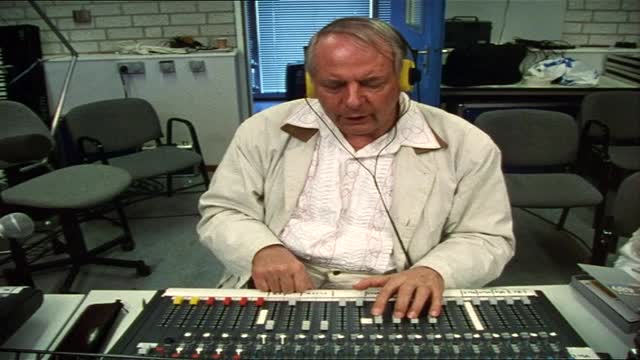Stockhausen was among the leading avant-garde figures in German music from the 1950s onwards. In spite of material difficulties, he studied in Cologne with Frank Martin and was subsequently strongly influenced by attendance at Darmstadt, where summer sessions contributed largely to the development of new music. He went on to study with Messiaen in Paris. Parallel to his work in electronic music he explored the human element in performance, moving from total serialism, in which every aspect of a piece is controlled by a predetermined serial pattern, to a more flexible approach, making use of every device available.
Music
The numbering of Stockhausen’s works allows his earlier compositions the numbering of fractions, with his Kontra-Punkte of 1952 as the first whole number, No. 1. A varied and fascinating series of compositions includes Zyklus, which features strongly in modern percussion repertoire, Stimmung for electronically treated voices, and Mantra for two pianos, woodblocks and crotales, the result of a visit to the Osaka World Fair at which his music was featured.
Of particular interest regarding the development of Stockhausen’s ideas is Gruppen, first performed in 1958 and using three orchestras surrounding the audience. Use of short-wave radio occurs in Hymnen, Spiral, and his celebration of the bicentenary of Beethoven’s birth, Kurzwellen mit Beethoven (‘Short-Wave with Beethoven’). Aus den sieben Tagen (‘From the Seven Days’) is a series of 15 pieces that is written without notes but with verbal directions to performers, on whose particular imagination and ability Stockhausen so often relied.
The work Licht, a project divided into seven days and involving dramatic use of instrumental performance, remained a preoccupation from 1977 to its completion in 2003. Donnerstag (‘Thursday’) gives a significant dramatic part to a solo trumpet, and Mittwoch (‘Wednesday’) has, as its third scene, a Helicopter String Quartet, in which the players are flown in a helicopter, the performance also involving four cameras and four television transmitters. The size of this work is characteristic of the composer’s Wagnerian tendencies. In 2004 Stockhausen began a new cycle based on the hours of the day: Klang. Intended to comprise 24 pieces, it was left incomplete at the composer’s death, though he had worked at speed and produced 18 of its component parts. All in all the comprehensive nature of Stockhausen’s work and its development over nearly 60 years defy succinct summary.
| Title | |
| STOCKHAUSEN, K.: Helicopter String Quartet (Classical Documentary, 1996) | |

|
STOCKHAUSEN, K.: Helicopter String Quartet (Classical Documentary, 1996)
Composer:
Stockhausen, Karlheinz
Artists:
Arditti Quartet -- Stockhausen, Karlheinz
Label/Producer: EuroArts |
